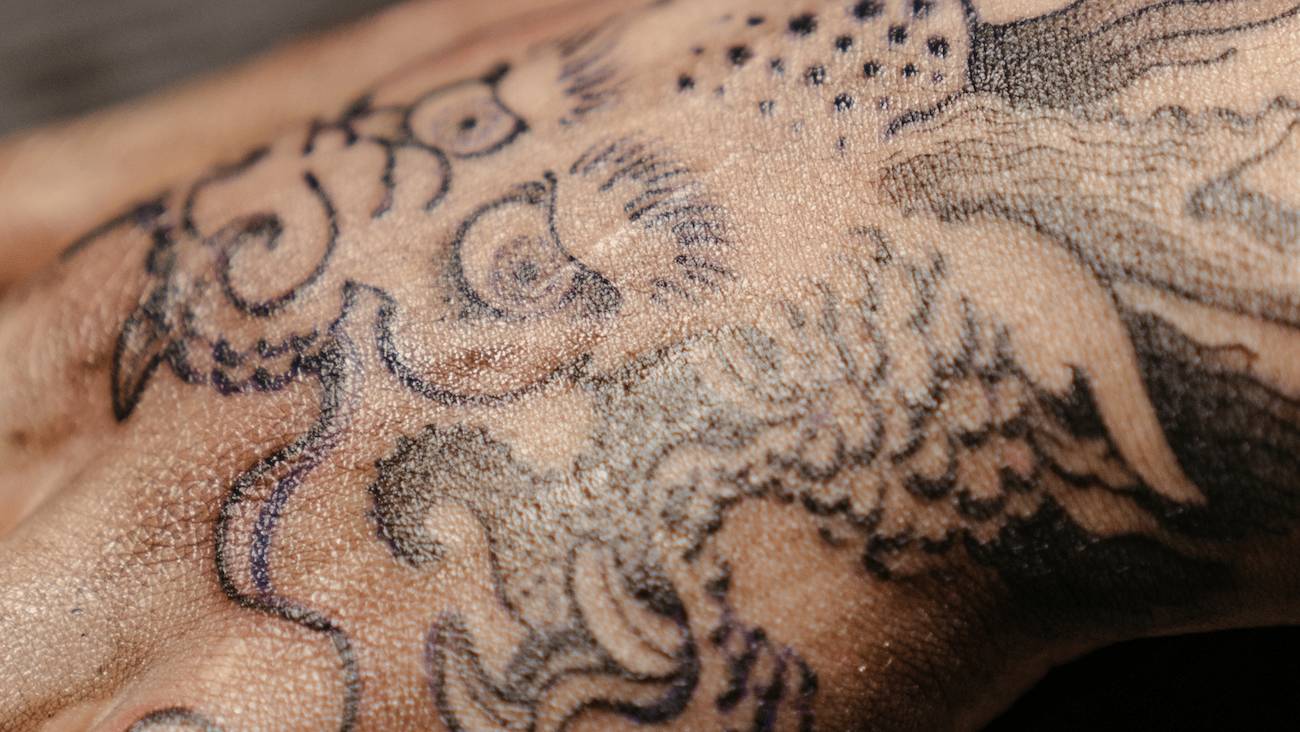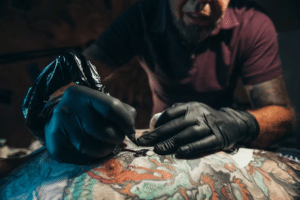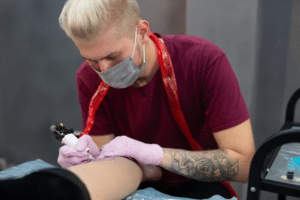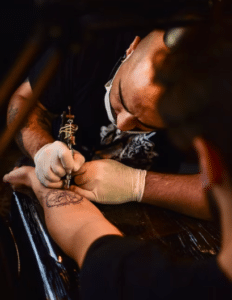How To Get A Tattoo Licence
Be One Step Closer to Tattooing – Get Your Licence Now!
Are you considering a career in tattooing?
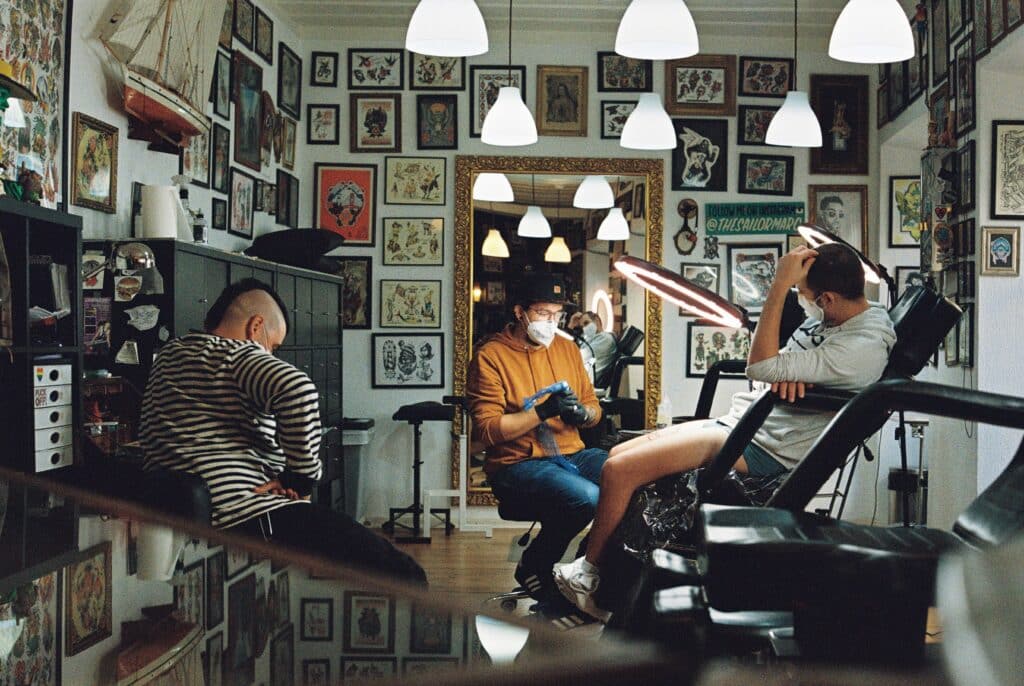
The UK has strict laws regarding tattooing, and you must ensure that you fully comply with the law before beginning your business. Getting a tattoo licence is an important step for any aspiring tattoo artist and can be very confusing due to the different regulations across the UK.
In this article, we will discuss what it takes to get a tattoo licence in the UK and how you can ensure you remain compliant with the law.
Tattoo Artist Licensing
Tattoos have become increasingly popular in recent years, and many people turn to professional tattoo artists to get their desired designs inked onto their bodies. However, as with any profession, tattoo artists must obtain the necessary licensing before practising their craft. In the UK, this means obtaining a licence from the local council.
Several requirements must be met to obtain a tattoo artist licence in the UK. Firstly, applicants must provide proof of age and identity. They must also demonstrate adequate knowledge and training in hygiene and infection control procedures. Additionally, they must show appropriate insurance coverage for their business activities.
Once an individual has obtained a tattoo artist licence in the UK, they can legally operate within their area of jurisdiction. This includes setting up a shop or working as an independent contractor providing services on a mobile basis.
Rules and Regulations
To obtain a tattoo licence, an individual must meet specific requirements set by local authorities.
The first step is finding out what the legal requirements are in your area. Each local authority has different procedures and regulations for obtaining a tattoo licence. It’s important to check with your local council for their specific guidelines.
Once you have familiarised yourself with the guidelines, you must complete a registration process which involves submitting an application form along with supporting documents such as proof of identity and qualifications or certifications. The application process includes providing details of your premises, equipment and hygiene practices.
Price
If you’re an aspiring tattoo artist in the UK, getting a tattoo licence is essential to practise your craft legally. The cost of obtaining a tattoo licence varies across different regions in the UK, but most licensing fees fall within the range of £60-£120. In addition to this initial fee, there are costs associated with renewing your licence annually.
Additional fees may apply depending on where you live or work as a tattoo artist in the UK. For example, if you operate out of multiple locations, you may need to pay separate licensing fees for each address.
Licence Renewal
As a tattoo artist in the UK, it’s important to stay up-to-date with your licence renewal requirements. Failing to renew your licence on time can result in fines, legal issues, and even loss of business.
Firstly, check the expiration date of your current tattoo artist licence issued by the local council or other governing body. You should receive a reminder before it expires, but keeping track of yourself is always best. Once you have confirmed it is due for renewal soon, visit the council website and download an application form.
The next step is to fill out the application form completely and accurately. This includes submitting required documentation, such as proof of insurance which must be current and valid during operation.
If you are a UK tattoo artist, you must renew your licence every 18 months. The renewal process is fairly straightforward, but you must stay on top of it and ensure you don’t miss any deadlines.
Education
Firstly, you must complete a blood-borne pathogens course approved by the local authority where you plan to work. This course covers essential information on preventing the spread of infections such as HIV and Hepatitis B&C during tattooing procedures. You will also need proof of completion of this course when applying for your licence.
Additionally, you must prove that you have received proper training from a reputable source, such as an accredited school or apprenticeship program.
Tattoo Artist Requirements
The demand for tattoo artists is high, especially in the UK, where the industry has seen a surge in popularity over recent years. However, becoming a successful tattoo artist requires more than artistic talent and passion.
Design A Portfolio
Your portfolio is your calling card and can make or break your business. To create a successful portfolio, you must ensure it showcases your skills and experience in the best possible light.
Firstly, ensure that your portfolio is well-organised and easy to navigate. Potential clients should be able to find examples of work that appeal to them quickly. Consider categorising your work by style or body part, depending on what works best for you.
Secondly, focus on quality over quantity. You may have completed hundreds of tattoos over the years, but including all of them in your portfolio could overwhelm potential clients. Instead, choose the pieces that showcase your best work and demonstrate a range of styles.
Finally, don’t forget to include information about yourself and any relevant qualifications you may have.
Meet Health And Safety Regulations
The health and safety of your clients should always be a top priority, as well as your own. To ensure that you are meeting these regulations, there are several steps you can take.
Firstly, make sure that your workspace is clean and tidy at all times. You should also have access to adequate lighting and ventilation. Additionally, it is essential to use sterilised equipment for each client. This includes needles, ink caps, gloves and any other materials that come into contact with the skin.
It is recommended that tattoo artists attend training courses on health and safety regulations to stay up-to-date with any changes or updates in the industry. Furthermore, it may be worth investing in insurance coverage for potential accidents or injuries during tattooing.
Invest In Insurance
While tattooing is a creative art form, it also involves risks that can be mitigated by having proper insurance.
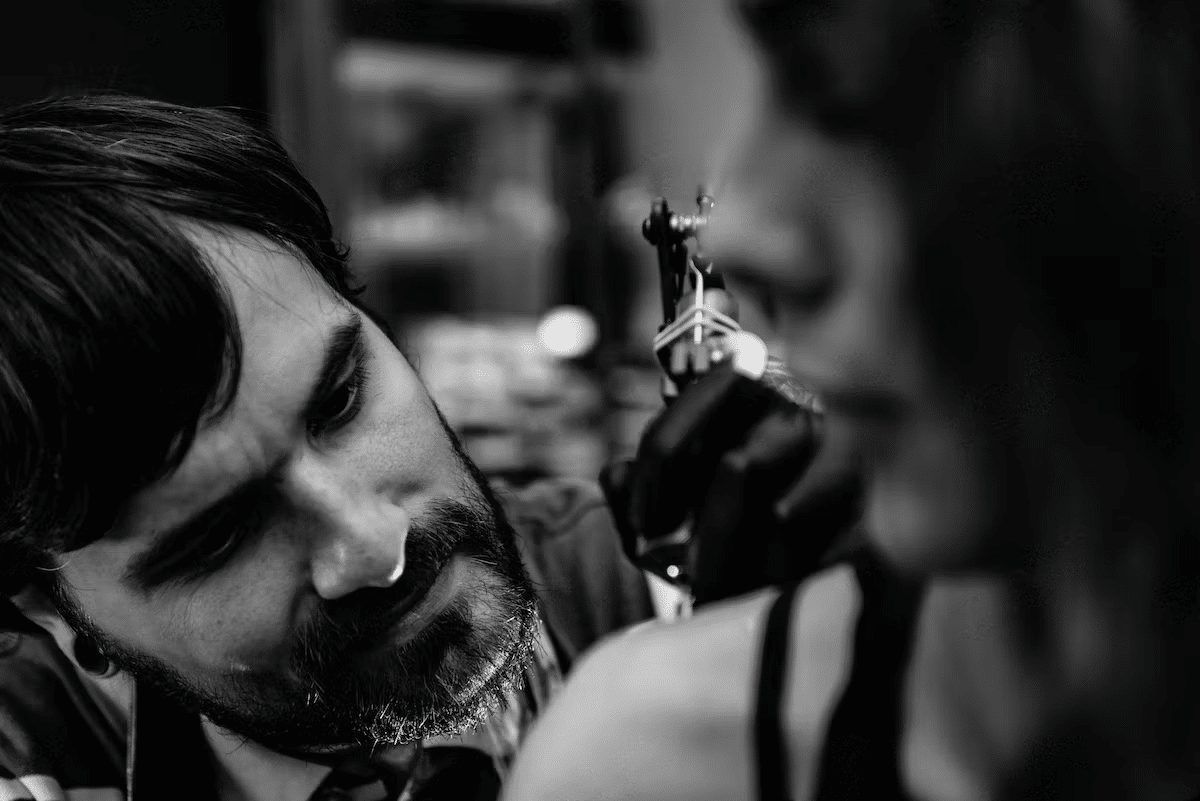
Different types of insurance policies are available for tattoo artists, including liability coverage and property damage protection.
Liability coverage includes bodily injury and property damage caused by your services, while property damage protection covers any loss or damage to your equipment or supplies. It is essential to consult with an insurance provider specialising in tattoo artists’ needs to determine which policy best fits your specific needs.
Having insurance as a tattoo artist protects you from potential legal claims and gives peace of mind to clients who trust you with their bodies.
Conclusion
In conclusion, getting a tattoo licence in the UK can be a complicated process, but it is worth it for those with a love and passion for tattooing. Many resources are available to help guide you through such as online forums, government websites, and support groups.
Despite its complexity, obtaining a tattoo licence in the UK opens up new opportunities to build on your craftsmanship and create amazing art pieces.
FAQs
What are the benefits of getting a tattoo licence in the UK?
One of the biggest benefits of getting a tattoo licence is that it allows you to practise professionally in the UK. You can take on clients, create custom designs, and offer services such as piercings or body art. You will also have access to health and safety regulations essential for protecting yourself and your clients.
Another benefit of getting a tattoo licence is that it can help boost your reputation as an artist. Having a licence shows potential clients that you are serious about your work and have taken the time to get the necessary qualifications and training.
What is the legal age to have a tattoo in the UK?
The legal age to get a tattoo in the UK is 18. This is because tattoos are considered a form of body modification, and it is illegal for anyone under 18 to have any body modification without parental consent.
What are the penalties for practising without a tattoo licence in the UK?
Practising tattooing without a licence in the UK is a criminal offence. If caught practising without a licence, you may face fines of up to £5,000 or up to six months in prison. Additionally, if you are found to be operating an unlicensed tattoo studio, the local council can take action against you, which could lead to further fines and imprisonment.

